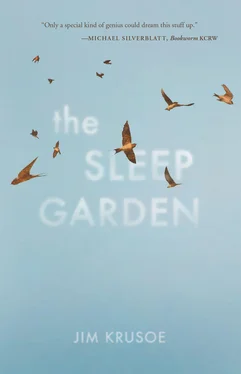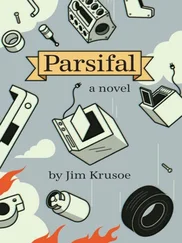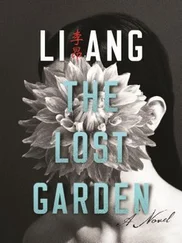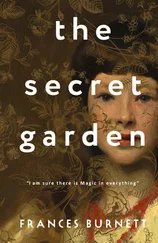He takes out a piece of paper and a pen and starts to write. His first investment was something like $2,662.00, and he made ten percent right from the start.
That means something like this:
Month 1: $2662 X.10 = 226
Month 2: $2662 + 226 = 2888 X.10 = 288
Month 3: $2888 + 288 = 3176 X.10 = 317
Month 4: $3176 + 317 = 3493 X.10 = 349
Month 5: $3493 + 349 = 3842 X.10 = 384
Month 6: $3842 + 384 = 4226 X.10 = 422
Month 7: $4226 + 422 = 4648 X.10 = 464
Month 8: $4648 + 464 = 5112 X.10 = 511
Month 9: $5112 + 511 = 5623 X.10 = 562
Month 10: $5623 + 562 = 6185 X.10 = 618
Month 11: $6185 + 618 = 6803 X.10 = 680
Month 12: $6803 + 680 = 7483 X.10 = 748
Month 13: $7483 + 748 = 8231 X.10 = 823
Month 14: $8231 + 823 = 9054 X.10 = 905
Month 15: $9054 + 905 = 9959 X.10 = 995
Month 16: $9959 + 995 = 10954 X.10 = 1095
Month 17: $10954 + 1095 = 12049 X.10 = 1204
Month 18: $12049 + 1204 = 13253 X.10 = 1325
Month 19: $13253 + 1325 = 14578 X.10 = 1457
Month 20: $14578 + 1457 = 16035 X. 10 = 1603
Month 21: $16035 + 1603 = 17638 X.10 = 1763
Month 22: $17638 + 1763 = 19401 X.10 = 1940
Month 23: $19401 + 1940 = 21341 X.10 = 2134
Month 24: $21341 + 2134 = 23475 X.10 = 2347
Month 25: $23475 + 2347 = 25822 X.10 = 2582
Month 26: $25822 + 2582 = 28404 X.10 = 2840
Month 27: $28404 + 2840 = 31244 X.10 = 3124
Month 28: $31244 + 3124 = 34368 X.10 = 3436
Month 29: $34368 + 3436 = 37804 X.10 = 3780
Month 30: $37804 + 3780 = 41584 X.10 = 4158
Month 31: $41584 + 4158 = 45742 X.10 = 4572
Month 32: $45742 + 4572 = 50314 X.10 = 5031
Month 33: $50314 + 5031 = 55345 X.10 = 5534
Month 34: $55314 + 5531 = 60879 X.10 = 6087
Month 35: $60879 + 6087 = 66966 X.10 = 6696
Month 36: $66966 + 6696 = $73662
Viktor’s favorite months are Month 8, when the interest begins to move forward for the first time at amounts greater than five hundred dollars; Month 23, when he breaks the two-thousand-dollar-per-month mark; and also Month 34, when the total moves from the fifties to the sixties, and at the same time his monthly profits move from five thousand a month to six thousand.
In any case, he calculates that three years from whenever it was he started, he’ll have enough to leave the Burrow for good, and maybe rent an office in a skyscraper where, in addition to the ever-increasing profits from his own investments, he can also offer to invest the money of others, taking a small percentage of the return he obtains for them to reward himself. Then, he thinks, the money will start to roll in big time, and if Madeline wants to go back to the Duck Man at that point, well, she’s welcome. Even if she wants to stay in the Burrow, Viktor’s sure he’ll have no trouble finding some other woman who will be happy enough to live with a person who, although he may not have Raymond’s ways —whatever those are supposed to be — just happens to be rolling in wealth. There’s Heather, for one, he thinks. There’s something about Heather that Viktor finds interesting, though a little standoffish. He can’t put his finger on what it is, but there’s something going on beneath that demure surface, and if people care to place a bet to see who the real winner is here — Viktor or the Duck Man — he’ll cover that bet. Speaking for himself, Viktor has no doubt at all who will come out on top. Mano a mano, so to speak.
And now it’s time to get back to work.

Sometimes Raymond wonders what it is like to be a duck: What is it like to have a facial expression so frozen that no one, not even another duck, can tell if you are in pain?
It must be safe in one way, but then sooner or later the hunters come along and say to each other: “Hey, look at those birds out there, bobbing on the pond. We can shoot them because they can’t feel emotion.”
But that’s not true , Raymond thinks. Not even a little bit.

Meanwhile, fresh shoots push up out of the ground like dead fingers. Step down on them, hard, lest they take hold.

Who is it that says the following:
“Junior, you put that chair down right now.”
“Now leave that two-by-four right where you found it.”
“Put down that iron bar immediately.”
“Put that cinder block down.”
“Put down that crossbow and leave.”
Why, many different people.

Crossbow?

Madeline and Viktor are in the kitchen one night. Madeline is making a bowl of cinnamon toast and milk for both of them and using not granulated sugar, but the natural unbleached and coarse-ground variety, which someone was kind enough to leave the other day, when Jeffery enters.
“Jeffery,” Madeline says, “would you like me to make a cinnamon toast for you? It’s not any trouble.”
Jeffery weighs the question. It’s late, and he’s planning to go to bed at any minute. Come to think of it, he’s not even sure what made him walk out of his room to the kitchen in the first place. Maybe he’s getting cabin fever. “No thanks. But actually, seeing the two of you here like this gives me an idea.”
Viktor looks at Jeffery as if for a moment he has materialized from outer space. Why would Madeline be offering to make him toast? Did Jeffery have his ways as well?
“So it’s like this,” Jeffery says. “Here we are all together in the Burrow and yet how often do we have a chance to sit down and talk? Not often, right? I mean we do have the chances, and a lot of them, but we never do it. What do you say we make a point of all of us getting together once a week, here in the kitchen, and we can have a meeting where we can discuss the ideas of the day, and how everybody is feeling, and other various concepts that might occur to us, you know — like life after death, and things like that? That is, if we all agree to do it. Or we could even have an agenda, so after we’ve finished one subject, at the end of the meeting we could vote on another one to talk about the next week, which would give us a whole week to prepare our thoughts and the like. Or, for that matter, we could do it in rotation, where people choose their own topics, and then when we’ve finished with those everyone chooses again.”
The toaster oven pings, and Madeline puts a couple of slices of hot toast into bowls and pours on a little warm milk. She gives one to Viktor and keeps the other for herself.
“So what do you think,” she asks Jeffery, “is Louis ever coming back?”

Strictly speaking, the ducks Raymond keeps in his room are not actual decoys at all, but only duck interpretations, or duck tributes, carved from wood, because it’s not the act of carving them that makes them decoys; it’s the humans who place them where they might attract ducks and lure them for a landing. You could do that with handkerchiefs, or painted rocks, for that matter, and people have done it with those, too. Decoys don’t kill ducks, Raymond thinks, people kill ducks, and Raymond would never kill anything.
Читать дальше













